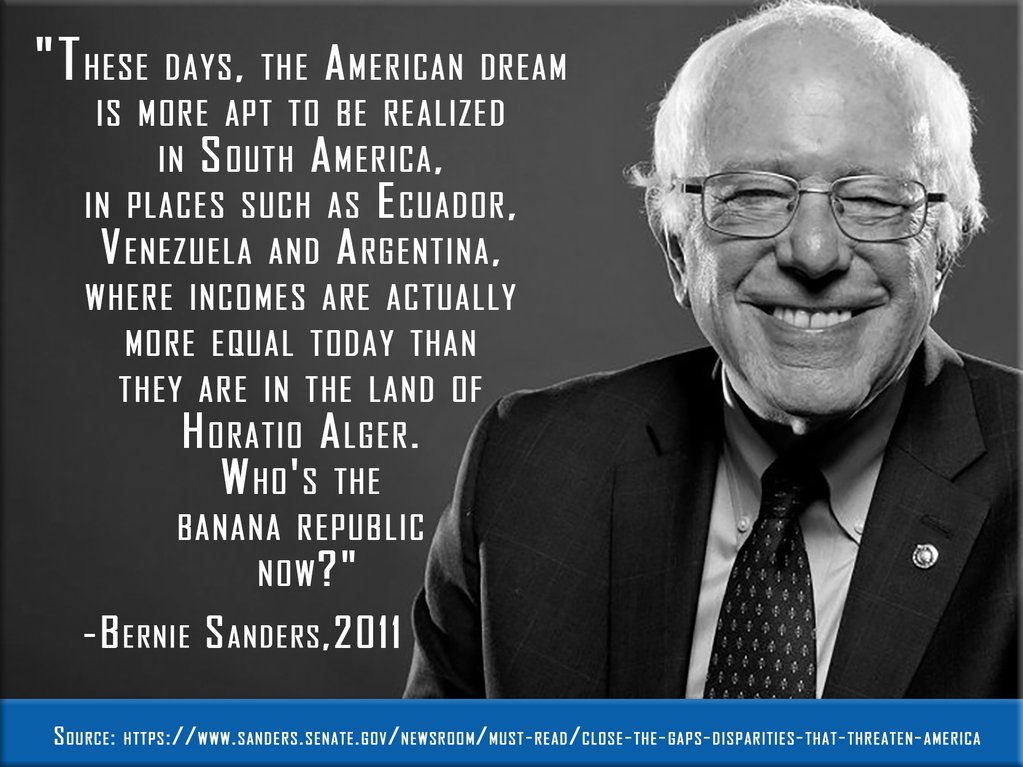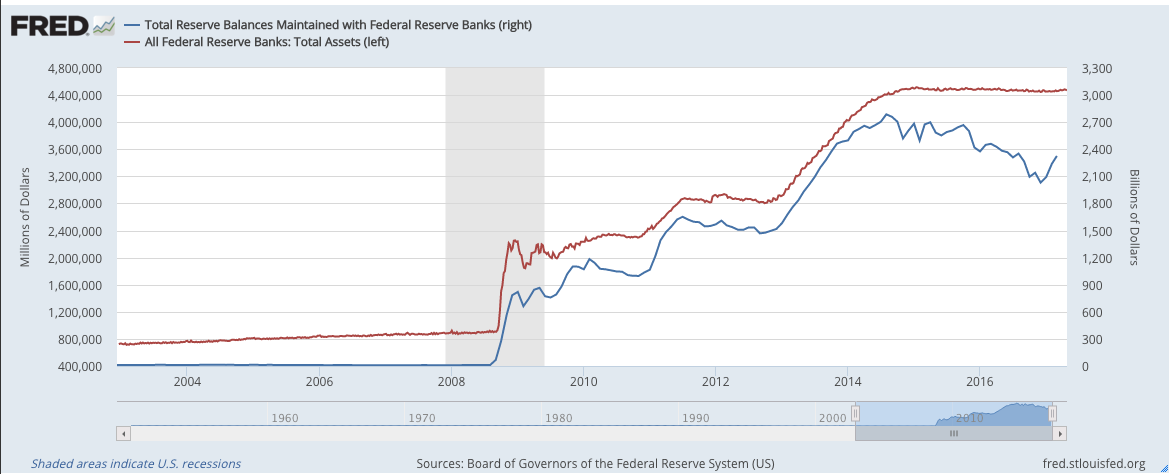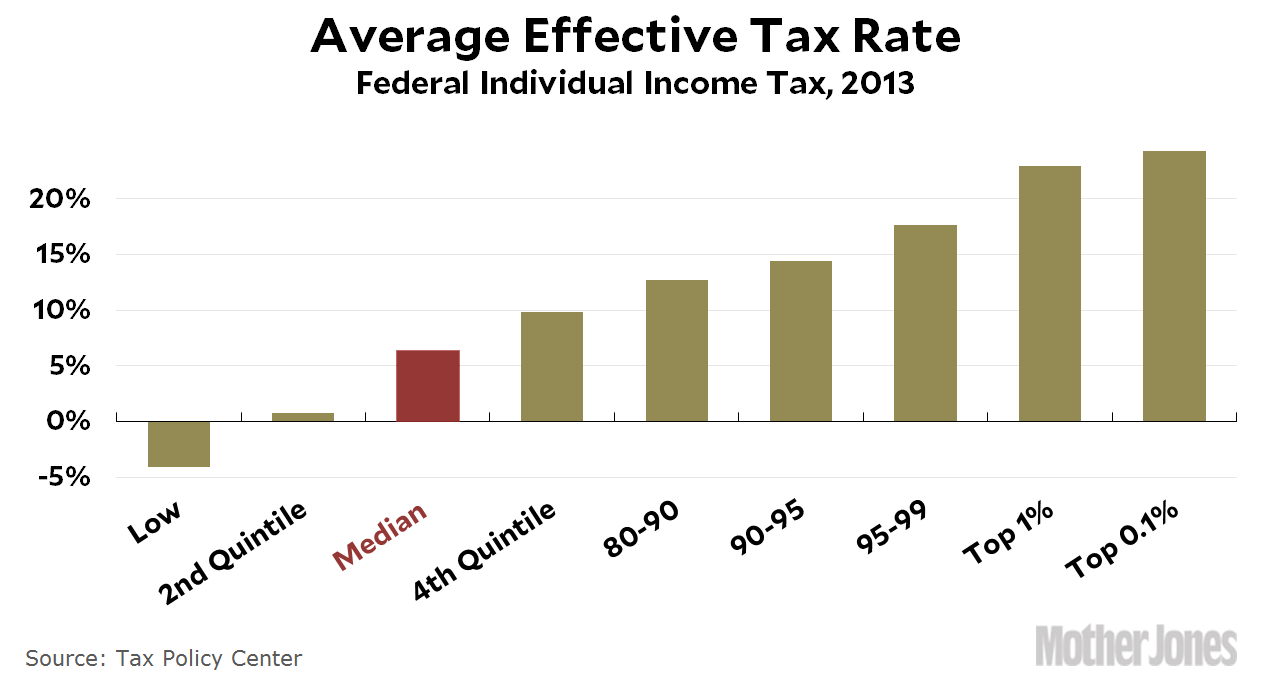Fake News: How I Became Part of the Problem
When I was doing research for an op ed on Venezuela, I came across a hilarious find and asked Natalie Danelishen to whip up a meme. Isn’t it perfect?
I posted this beautiful meme on Facebook and Twitter. People loved it. It was shared hundreds of times, the last I checked.
There’s just one problem. Bernie Sanders (almost certainly) didn’t write or say that.
How is this possible? Am I just a big fat liar?
Here’s what happened:
When I was doing research for my op ed, I knew that a lot of people had praised Hugo Chavez. So I googled something to that effect, and got some good hits. For example Joe Stiglitz said some awkward things (though go to the source to see exactly what he said).
But I also found a person who (somewhat recently) claimed that Bernie Sanders had praised Chavez’s policies back in 2011. I clicked on the link, and sure enough, it looked legit. It was hosted on Sanders’ official government website, and at the top of the article there was just a newspaper listed, with no author. So it certainly looked like it was an op ed that Senator Sanders had had published in the “Valley News” in 2011. I thought I had done my due diligence, and sent the text (with the year, to be fair to Bernie) and the link to Natalie to memefie.
And yet, my procedure wasn’t good enough. The “must read” section from Sanders’ website is clearly linking to other people’s stuff. And then when you find the original article, you see it is almost certainly an unsigned editorial from the Valley News, rather than something that a senator sent to the newspaper as an op ed piece.
So, my apologies for the wrong link I gave here at Free Advice back when I first stumbled upon the article, and my apologies to all internet users for unwittingly spreading fake news. (I took down the meme from my social media accounts and posted a follow-up warning once I realized it might be wrong.) Thanks to E. Harding who first warned me that Sanders probably didn’t write the article.
Heaven on Earth
I was going over the “Our Father” very slowly with my son, since there is often a tendency for Christians to rush through it without really contemplating the words. When we got to “Thy kingdom come, thy will be done, on Earth as it is in Heaven,” I stopped to dwell on just how amazing the world would be, if everybody obeyed God.
I don’t think even standard libertarian anarchists realize just how destructive the State is, and how unimaginably prosperous the world would be as a stateless society.
However, although getting rid of major institutions of theft and violence would be great, that’s arguably a drop in the bucket compared to how inconceivably joyous life would be if nobody ever sinned. Can you imagine how different you would be, if your parents (assuming you knew them) never made a mistake in bringing you up, and none of your peers ever said an unkind word to you growing up? Imagine if you never had a teacher or boss who ever unfairly criticized you or quashed your legitimate ambition?
I’m not saying I can imagine it either. The closest thing I can do is remember how happy I was circa kindergarten. And then it was all downhill from there…
You may remember in previous posts that I suggested that perhaps hell is when, after you die, God shows you the full ramifications of your sins during your life. You see in exquisite detail just how much suffering YOU CAUSED. And then you just sit with that for eternity. I could see that being described as burning in fire forever, and yet it also being perfectly just. You would be in anguish because of your own value judgments, your own conscience applied to your life with razor sharp clarity.
So, if that is true, then take it the opposite. If the present world we live in–awash with sin–is full of the hell-like anguish caused by billions of people, then imagine if you ran it in reverse. Imagine if just one person had lived a sinless life; then all of the countless suffering HE caused would be gone. And so on and so on, billions of times over. (It’s not just the people alive today, but also the people from the past. After all, when Marx e.g. sees the ramifications of his actions, it’s not just going to be the paperboy whom he treated rudely.)
It’s possible that in a world free from sin, the material productivity of our resources would defy our current understanding. Even our bodies would perform at extraordinary levels if we never had a moment of anxiety or stress stemming from social factors.
It would be paradise.
And that makes it all the more heartbreaking that we so habitually ignore God’s rules.
An Interesting Development in the Banking System
For a while I have been meaning to investigate the drop in reserve balances maintained with Federal Reserve banks, but I’ve been swamped with projects and traveling. But at least let me document it for you. Any ideas? (Click on image for full size.)
Potpourri
==> “Dadbucks”: an experiment in central banking.
==> This NYT headline says a guy was fined for “doing math without a license.” I assumed it was hyperbole, but it’s pretty close to what happened. (He was protesting the length of yellow lights to a city council.)
==> In honor of the March for Science I recycled (ha ha) an awkward quotation from Krugman’s review of Nordhaus’ 2013 book on climate change economics, and then I ended with:
To be sure, Krugman goes on to say that he disagrees with Nordhaus on this matter. But Paul Krugman is not a pioneer in the field, and he hasn’t spent decades developing a peer-reviewed model that was one of three selected by the Obama Working Group to estimate the harm of carbon dioxide emissions. William Nordhaus was, and William Nordhaus is saying that the popular 2°C target “is not really very scientific.”
I sure hope those who marched for science will take seriously the input from one of the most respected authorities on the planet. To make the case that governments should intervene to limit greenhouse gas emissions, it’s not enough to list a bunch of potentially bad things that could happen from “business as usual.” There are serious scholars in the field of economic science who are using the state-of-the-art modeling to argue that popular climate goals will hurt humanity more than they will help. When so many environmental activists glibly dismiss these warnings, it leads me to suspect that the “refusal to follow the science” is more widespread than these marchers realize.
==> [EDIT: See this post to understand the problem with this particular item. Bernie linked to, but didn’t write, the article in question.] I was doing an article on Venezuela and came across this awkward Bernie Sanders post on his own official website, from 2011. Last paragraph: “These days, the American dream is more apt to be realized in South America, in places such as Ecuador, Venezuela and Argentina, where incomes are actually more equal today than they are in the land of Horatio Alger. Who’s the banana republic now?”
==> The Trump Administration continues to produce upside down results. In his zeal to zing Gary Cohn, Kevin Drum ended up admitting that the rich pay almost all of the federal income taxes in the US, and even produced this chart:
This struck me as amazing. I thought, “This is really really unusual for Mother Jones to run a chart like this; it’s normally something you’d expect from Cato or Heritage.”
Just to check myself, I googled “mother jones rich don’t pay fair share” and immediately found this article from 2011:
Phew! I’m not going crazy. (BTW both of the Mo Jo articles rely on data from the Tax Policy Center to make their case, and neither of them is lying. Discuss.)
How Does Lucas Differ From Traditional Keynesian Stories on “Money Illusion”?
I sent an email to an expert but thought I’d also post my issue here:
“This paper has been at attempt to resolve the paradox [that money is a fluttering veil]. The resolution has been effected by postulating economic agents free of money illusion, so that the Ricardian hypothetical experiment of a fully announced, proportional monetary expansion will have no real consequences (that is, so that money is a veil). These rational agents are then placed in a setting in which the information conveyed by market prices…”
“Slavery: A Global Investigation”
I have been informed by some activists that many libertarians are either indifferent to, or are actively supporting, worldwide slavery. I have repeatedly asked them to write a guest blog post which I will host here, in which they point out specifically how libertarian attitudes and/or policy prescriptions are hurting the plight of those held in bondage around the world. They have declined my repeated offers (see here for example), but my offer stands.
In the meantime, they asked me to watch this documentary. I will do so by this weekend. If any of the activists (or regular readers of this blog) wants to highlight particular portions of the video they want me to address, please list them in the comments.
NOTE: I would ask libertarian readers of this blog to please bend over backwards in treating these activists with civility. I think they are incredibly misguided in viewing libertarians as supporting slavery, but you don’t help disabuse them of that view if you return their insults etc. in the comment section.
Why Does Freedom Work?
This was my talk at the Independent Institute event in San Fransisco in April. What’s new here is my opening discussion of Carlos Lara.
Catching Up on Contra Krugman
I think I’m way behind. (I went to Europe for a week.) Here you go:
==> In Episode 82 we talk about the cruise missile attacks on Syria. We have Dan McAdams from the Ron Paul Institute as a guest.
==> In Episode 83 we talk about Trump’s focus on bringing back manufacturing jobs. We kinda sorta agree with Krugman. The technological innovation in this episode is the audio clip from Obama. (Start around 12:20.)
==> In Episode 84 we talk about “voodoo economics.” Here’s a quick outline:
1:25 Tom and I talk about my European adventure.
3:10 We talk about public marriage proposals.
4:02 We note the irony of Krugman and zombies.
4:55 Tom summarizes the column. Krugman argues that the Trump Administration’s tax plan relies on the same old voodoo Laffer curve scam.
9:05 Tom points out that the Reagan Administration never claimed the original tax cut would “pay for itself” via growth. (Their point was merely that a dynamic analysis was more optimistic than a static one.)
11:00 I point out that the Laffer Curve by its very nature doesn’t claim that all tax cuts pay for themselves. So clearly it can’t be the case that Arthur Laffer doesn’t know how to read his own curve!!
13:25 A really important point from Laffer is that the term “tax cut” is ambiguous; it’s better to refer to “tax rate reductions” or “reductions in tax receipts.”
15:08 Tom is optimistic about the details (such as they are) of the Trump tax plan.
18:15 I point out that many libertarians won’t tax “yes” for an answer when it comes to Trump’s policies.
19:15 I give some stats on how much “the top 1%” pay in income tax. This is why tax rate reductions “go to the wealthy.”
20:23 I show how odd Krugman’s argument is when he claims that the supply side doctrine has “been tested time and again and has failed every time.”
21:20 I give the stats on federal tax revenues in the 1980s, showing that on a naive level, Reagan’s “tax cuts for the rich” really did “pay for themselves.”
22:10 I point out that tax cuts boosting the economy is consistent with Keynesianism too! We have another sound clip, this one from Krugman.











Recent Comments